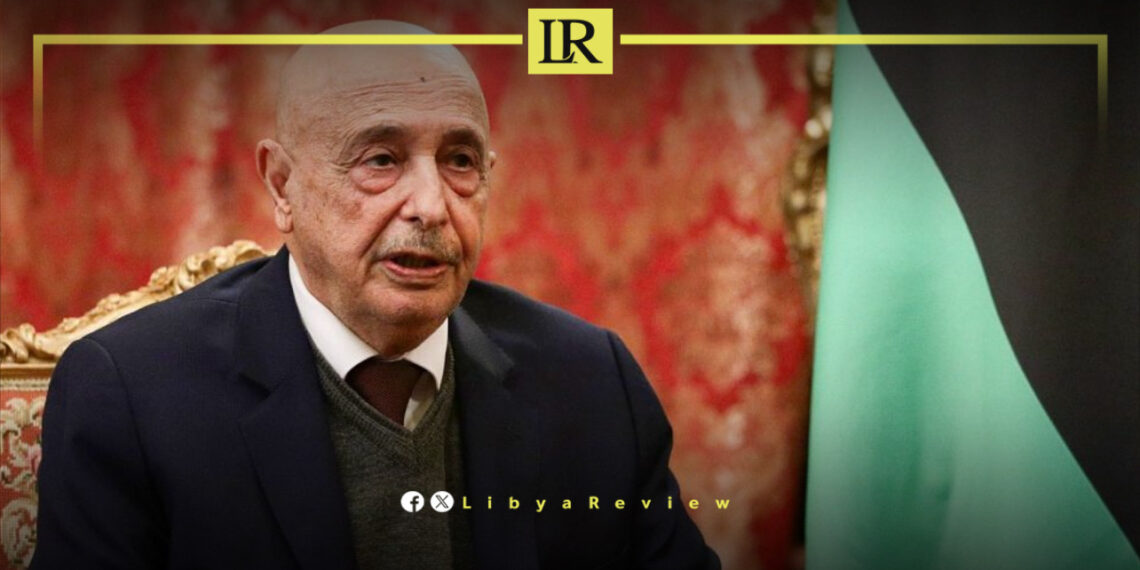Speaker of the Libyan House of Representatives, Ageela Saleh, recently voiced profound concerns regarding the deep-rooted issues plaguing Libya. He pinpointed armed groups not only exerting force and control but also dominating state institutions and occupying the streets of Libya in a literal sense. Saleh underscored that these groups rule the capital, take over state buildings, and terrorize government employees, questioning how a nation can recover and regain its sovereignty under such duress.
During his address, Saleh emphasized that addressing these issues requires more than just dialogue about calm and reconciliation; it demands a united stand from all Libyans against this security chaos. He explicitly called for the capital to be cleared of these outlawed armed groups that constitute significant obstacles to restoring peace and stability in the country. This, he declared, is a direct call to every Libyan to participate actively in regaining national sovereignty and determining the fate of their homeland.
Saleh also pointed out the significant hindrance illegal prisons pose to the justice system in Libya. These facilities, lacking any judicial authority, have become a stain on Libyan justice, with widespread abuses and extortion against ordinary citizens and employees alike. He lamented how a smooth political transition is feasible under these circumstances, where individuals are imprisoned and tortured outside the law without fair trials.
Further stressing the unity in the face of ongoing political assassinations in Libya, which he vehemently condemned, Saleh sees these as part of a cycle of violence tearing Libya apart. Despite political disagreements and ongoing conflicts, he reiterated that the nation must come first, urging unity against any threats to national cohesion.
On a constructive note, Saleh revealed that the House of Representatives has tasked him with drafting a reconciliation and reparations law. This proposal forms part of a broader strategy for national reconciliation, aimed at forming a dedicated body to oversee justice and reconciliation for those affected by the conflicts. Saleh stressed that this reconciliation must be genuine, based on justice and transparency, to truly turn the page on Libya’s dark past.
From Southern Libya, a region long marginalized due to centralized resource distribution and governmental neglect, Saleh calls for the initiation of the national reconciliation project. He views the South as the backbone of national unity, with community rebuilding starting from this war-torn region. According to Saleh, true reconciliation is not merely political agreements but a genuine partnership among all Libyans, starting from the South and extending to every corner of the country.


